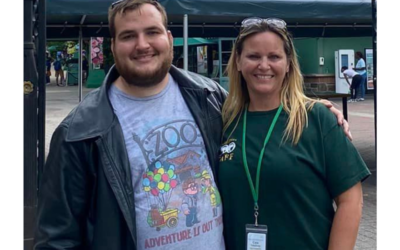The past 18 months have been…horrible?…challenging?…a learning experience? All three.
While we know that this year-ish has been tragic, a number of silver linings have emerged for many. We gathered a group of leaders from across the AZA community to hear their silver linings, as well as those of our audience.
Key takeaways included:
-
The leaders all discussed their people, how all leaders had become more empathetic, that they now know the “whole person,” and that the resulting change in leadership and culture has been very positive. Mental health is now part of the conversation.
-
Although everyone agreed that it was terrible having to lay people off, there were bright spots. One organization decided to ask for voluntary salary givebacks–one leader actually gave half of their salary–and they didn’t have to lay people off.
-
Everyone agreed that they were all much more deeply aware of every aspect of their finances. Some leaders discussed openly sharing considerable details with people across the organization, resulting in staff feeling much more ownership for the business. Folks were forced to collaborate, and in most cases, there are fewer silos. Cross-training is now part of the culture.
-
Many reported now being on fairly solid footing, with a number of organizations reporting that they were exceeding attendance and revenue numbers.
-
The pandemic forced everyone to dive into the zoo and aquarium processes, and to understand what things they were doing simply because they had always done them (e.g., why do we always do our fundraising gala in the middle of the hot summer?) Many found that new ways were more successful–with several mentioning that their online galas were more successful than their previous in-person events. Timed ticketing has allowed for better staffing plans and has alleviated crowding and parking issues. They now feel that the resulting organization is more strategic, more streamlined, and more efficient.
-
They all got closer to their “why” and used that as a filter for their difficult financial decisions during the year-ish and now. As they begin to add back positions, they’re re-thinking many aspects of their business from that perspective.
-
Many of them became closer to their communities overall, and many commented that their community has grown with the increased use of social media. Virtual learning will continue.
-
Changes that they had been considering were made overnight, and many are staying (e.g., online ticketing).
-
The time they were closed allowed many to do things they had wanted to–exhibit rehabs, DEI training, etc.
-
One participant encouraged folks to reach out to the AZFA (AZFA.org) as they have had a lot of these discussions and shared resources.
-
Many discussed similar silver linings in their personal lives, from more time with their families to developing tougher skin to becoming more creative and resilient, to learning to pause before they respond.
-
And people spent more time outdoors–good for all of us, and for the planet.
We thank our panelists for sharing their experiences and time:
-
Amber Christopher, COO, Denver
-
Jeff Ettling, CEO, Sedgwick Park Zoo
-
Charles Hopper, COO, Birch Aquarium
-
Lindsay Hutchison, CEO, Tulsa Zoo
-
Margo McKnight, CEO, West Palm Beach Zoo
-
Leigh Pierre-Oetke, CEO, Sequoia Park Zoo Foundation
Click here to view the full webinar recording.





